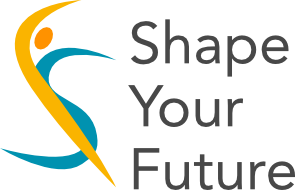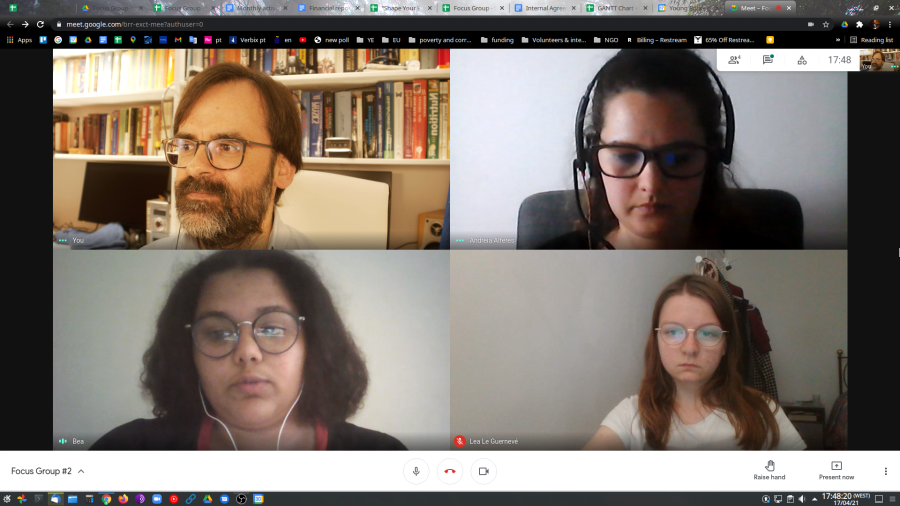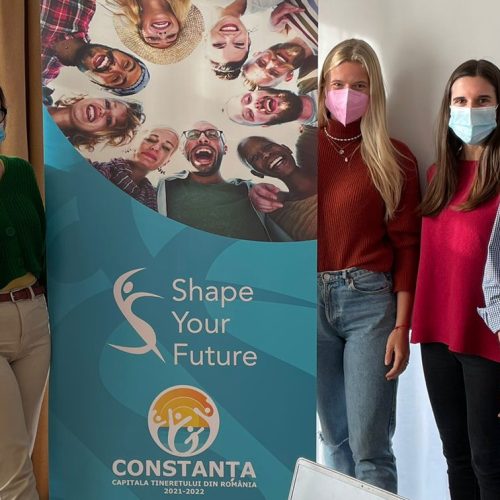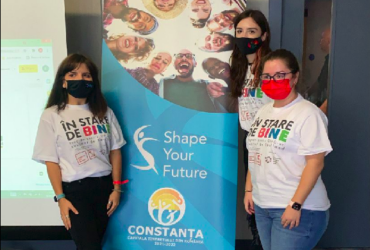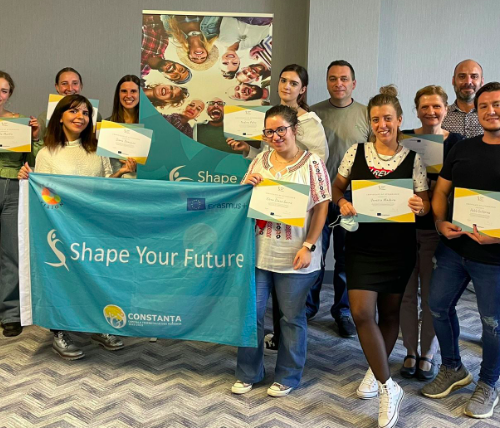The pandemic affected the activities of youth organizations and associations around the world, but those who had ideas and ingenuity quickly turned their attention. This is also the case of our partners in Portugal, who have moved their activity and meetings with young people online. Together, we managed to structure and implement the activities of the “Shape Your Future” project, implemented by the Youth Vision Association, together with Spain, Poland and Ireland. Thus, associations and youth organizations in Portugal conducted online activities such as round tables, consultations, focus groups in which young volunteers and representatives of youth associations and organizations had to answer questions about the pandemic activity, the problems encountered by NGOs during the pandemic, how the pandemic changed the activities of NGOs, what types of courses or materials those in NGOs would need to adapt their methods / activities to existing conditions, whether we are talking about the online or offline environment, possible obstacles in the use of digital tools in the NGO’s work, what are the main advantages and disadvantages of these online tools, what strategies do you use to motivate young people and how have they worked online with young people.
At the round table, participants from Portugal concluded that the pandemic has been a major obstacle for teachers in the teaching and learning process and, although in the non-formal education sector, they believe that the pandemic has had a major impact on children’s lives. and young people. Some institutions have managed to get some support and a few small training courses, which probably would not have worked so well face to face, as they will start to miss work and have no other stimuli, so they have managed to keep them online. , doing some training and already starting their first jobs. Many were lost because they (the organization) failed to create a dynamic of online meetings and it was very difficult to maintain this contact and so the meetings were suspended. Institutions reported that new tools are needed to create activities with young people and to minimize the effects of distancing. Young people realized that they had to interact with each other through platforms, so they distanced themselves even more. Many children and young people did not have computers, but the situation changed with the computers assigned by the state. Also, the representatives of the institutions consider that a Pandora’s box has been opened, this box brings good things, but this does not change what will be more important to maintain relationships, human relations and face to face.
Regarding the strategies used to motivate young people, respondents said that the interaction is the feeling of community spirit that has been lost a little in this context. At the same time, it was difficult to motivate young people to participate online, and access to digital tools was reduced.
The focus group of Portuguese partners was attended by youth workers and young people aged between 18 and 25, and the meeting aimed to understand the skills missing during the COVID-19 crisis in the partner countries among young people. Respondents reported difficulties in integrating young people and low interest in the proposed activities, the need to inform young people about the different activities, to explain their objectives, as well as difficulties in motivating young people when they are in areas with difficulty connecting. Regarding the motivation of young people to participate in online activities, the interviewees said that online meetings distract young people, they focus less, look more at their phone, do something else on the side, generally a decrease in involvement and dedication. The participants also came with some suggestions within the focus group. A platform that makes it easier to find a job for young people looking for their first job. (There are several platforms such as EURES, but there should be more centralized information). Training / workshops on how to gain experience as soon as young people finish university (This is because many companies want young people to already have experience when they have recently finished their studies). Better and more varied information about Erasmus programs (Volunteers indicate that there are more posters and faculty publications, but even so there should be more information and lectures, as many students do not receive this information).
At the same time, within the “Shape Your Future” project, which aims at the social inclusion of young people from disadvantaged backgrounds, integration into the labor market, facilitating access to educational and innovation programs and developing entrepreneurial skills, NGOs were forced to disseminate a questionnaire among young people, a questionnaire that included questions related to age, occupation, the need to improve or not some skills, pandemic training and education, support in identifying a job during the pandemic, we can conclude that the most many young respondents are between 18 and 25 years old (57%), over 65% are young, over 35% of them have a job, while over 25% are unemployed. Over 75% of respondents believe that they need to improve their technical, digital and communication skills and abilities. Over 60% of respondents said they did not receive any training to help them carry out their work or work during the pandemic, and the rest were trained in education and teleworking, and a quarter of respondents they conveyed that they do not want to specialize. More than 80% of respondents said they did not receive any help to keep or find another job during the Covid-19 crisis, and most say they need to improve their skills to and keep or find a new job. 24% of respondents would like to improve their speech, technical and digital skills.
Taking into account their answers and needs, the “Shape Your Future” project will create and make available to young people in the target group, from the five partner countries, the necessary tools to enable them to develop their social, entrepreneurial and professional skills in the market work.
